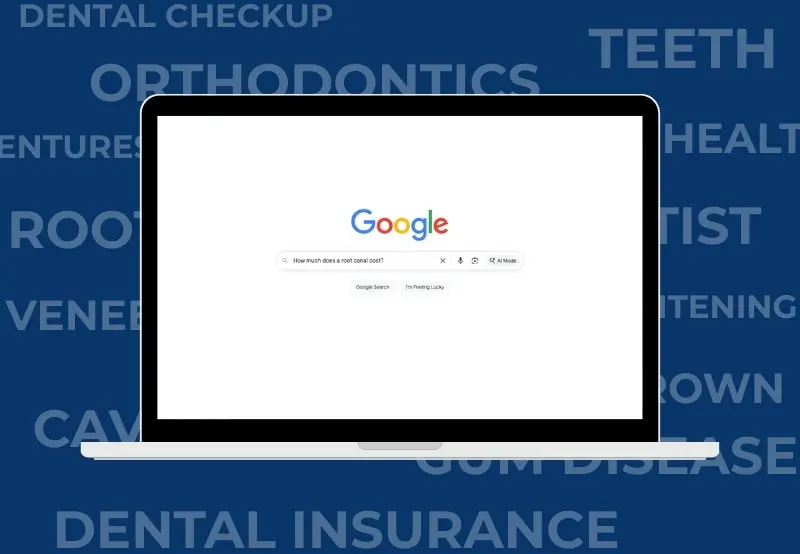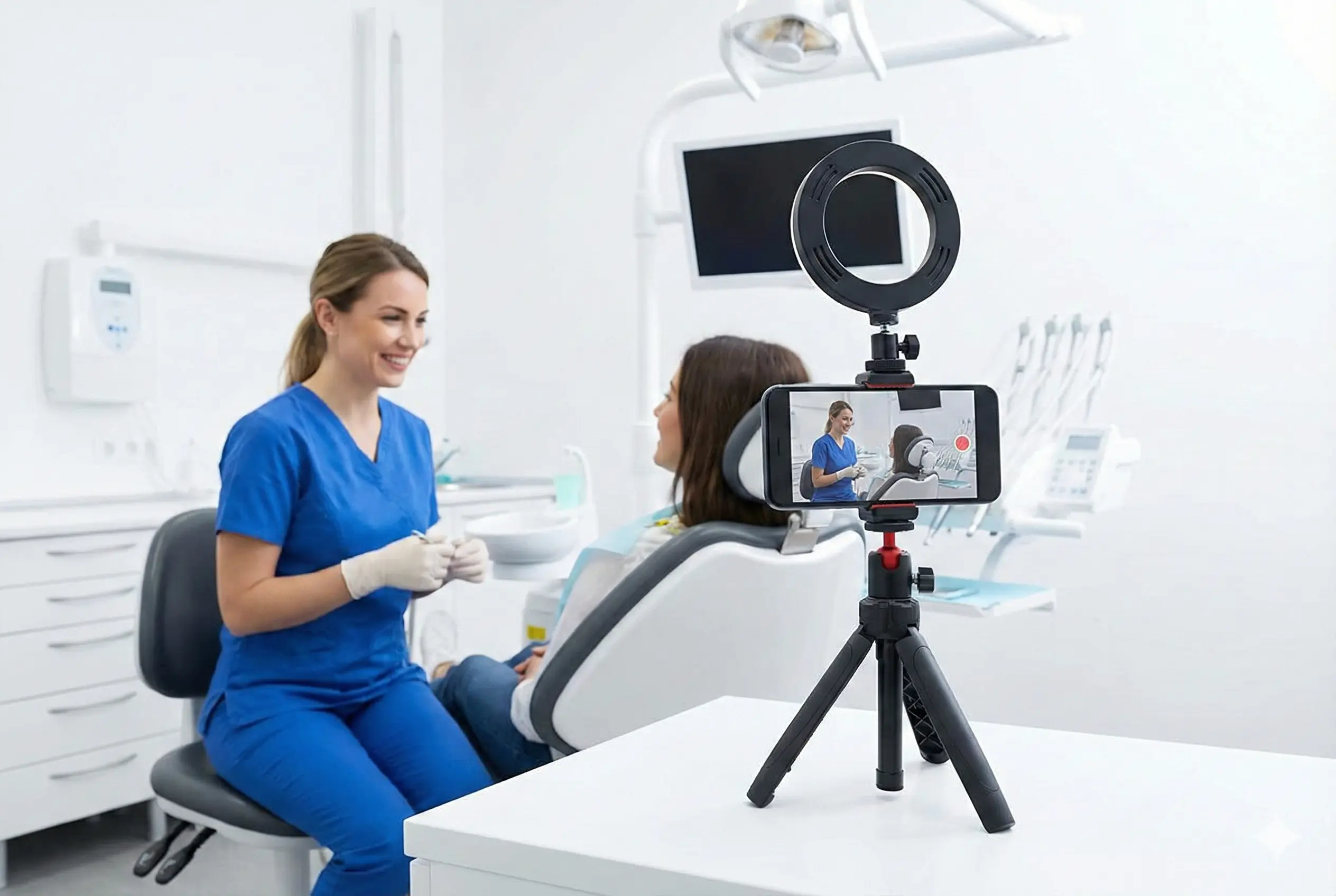Why Your Dental Practice Needs to Adapt to Zero-Click Searches
And what it means for your Google reviews, website content, and keywords
Search behavior is changing—and if your dental practice isn’t adapting, you could be missing out on new patients.
The trend toward zero-click searches is accelerating, driven largely by AI-powered summaries that deliver instant answers right on the search results page. Between AI, featured snippets, and Google Business listings, users are increasingly getting the information they need without ever clicking through to a website.
Let’s say someone searches, “Why does my tooth hurt?” Instead of clicking a website, they see an AI-generated summary at the top of the screen. This summary pulls information from various websites and presents what Google believes is the most helpful response—in just a few short paragraphs.
That user may never scroll down, never see the links below, and never visit any individual site. They got what they needed right there.
Now imagine that same person refines their search:
- They started with: “Why does my tooth hurt?”
- Then they ask: “How painful is a root canal?”
- Next: “How much does a root canal cost?”
- Finally: “Best dentist who does root canals in [city]”
At every step, Google may answer the question before the patient ever reaches your website. If your practice isn’t showing up in those summaries or local results, you’re not even part of the decision process.
So what can you do to improve your visibility in this new search environment? It starts with three key areas every practice can control—your Google reviews, your online content, and the keywords used in your website and advertising.

1. Your Google Reviews Matter More Than Ever
When people search for things like “best dentist near me” or “dentist accepting new patients,” your Google reviews and star rating are often the first thing they see—sometimes before they even see your website.
If your Google reviews are outdated, there aren’t many of them, or a few are negative, that could be enough to make a potential patient move on—without ever clicking your website.
And while reviews on Facebook or Yelp may still show up occasionally, Google reviews carry the most weight when it comes to visibility and trust. That’s why it’s more important than ever to regularly ask happy patients to leave a review and to keep your Google Business Profile up to date.
2. Searchers Are Asking More Questions Before They Click
Search behavior today is less direct and more conversational. Instead of typing one search and clicking a link, people ask a series of related questions, refining their intent with each step.
They might start with a symptom, ask about treatment options, then compare costs and look for a local provider. Throughout that journey, Google’s AI-generated summaries often answer their questions instantly—without the user ever clicking on a single website.
This means your practice has fewer chances to be seen—and every detail matters. If your Google reviews, website content, and Business Profile don’t clearly match what people are searching for, Google may choose to highlight another dentist instead.


3. Keywords Are Evolving—Here’s What You Need to Know
When someone searches online, the words they type into Google are called keywords. To help your practice show up in the right search results, those keywords need to be part of your website content and Google Ads (if you’re running paid campaigns).
There are a few main types of keywords marketers use in Google Ads:
-
Broad Match
Tells Google to show your ad when someone searches for anything related to your keyword—even if it’s not exactly what you offer. Example: If your keyword is “dentist,” your ad might show for searches like “dental hygienist salary” or “how to fix a chipped tooth.” Why it matters: Broad match reaches a wide audience, but it can waste money if your ad appears for the wrong kind of search. -
Phrase Match
Your ad shows when the exact phrase appears in a search, even if other words come before or after it. Example: “family dentist” could match “best family dentist near me.” Why it matters: A good balance between flexibility and relevance. -
Exact Match
Your ad only appears when someone types the keyword exactly (or very close to it). Example: [emergency dentist Dallas] would only show for highly specific searches. Why it matters: Great for reaching people who are ready to take action—like calling or booking an appointment.
Even if you’re not running ads, this matters for your website content too. On the non-paid (or “organic”) side of search, longer and more natural keyword phrases are now the norm. Instead of just typing “Invisalign dentist,” patients now search for things like “how much does Invisalign cost in [city]” or “best Invisalign dentist for teens near me.”
If your website doesn’t include the kinds of questions people are asking—and the services they’re looking for—Google may not show your practice at all.
If you're here, you're already taking the right step—now let’s make sure your practice shows up where it matters.
Bullseye Media specializes in helping dental practices stay competitive on Google—from managing your Google reviews to writing website content that matches how patients actually search. Call us at (800) 506-9817, email [email protected], or use the contact form to get in touch.



